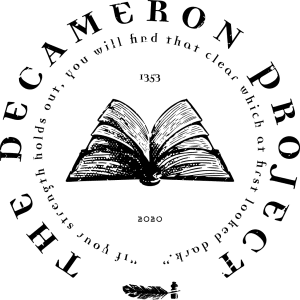“Darling, I think I’ve heard enough,” Tatiana interrupted.
Strange timing, as I am barely halfway through the cadenza of Greig’s concerto in A minor.
“You sound like shit.”
Yikes. She proceeds to ask me what the big deal is here, and why I can’t seem to play the right notes.
“This is a base requirement!” as she likes to say. “You can’t do anything with the music if you don’t even have the notes.”
I never know how to answer. She senses my cowardice.
“I think you should go home and practice, because I’m not here to do it with you.”
I choke out a quick thank you as I sheepishly scramble for my belongings, exit the classroom, and run out of the building. This wasn’t the last time she kicked me out of one of my lessons because my playing wasn’t up to her standards. She is scary and intimidating––exactly what you might expect of a Russian piano teacher. She is judgmental, demanding, and loud. She never writes down any instructions because she expects you to remember what she’s said from one lesson to the next. Her physical appearance, however, contrasts this drill-sergeant demeanor. Tatiana’s crazy, frizzy brown hair; huge, chunky, burgundy glasses; platform shoes; and neon Balenciaga handbag make her stand out in a building full of stuffy, old, music professors. She is an enigmatic, mismatched set of characteristics, but what is clear is that her life revolves around music and she cares deeply about her students.
It doesn’t matter how late I show up to my lesson because Tatiana will always have me wait for her to finish what she is doing with another student. While I sit and watch Tatiana yell corrections at another student, I try to gauge her mood, attempting to predict what is to come my way. And she invariably does the same for me; sometimes I sit in front of another child and his or her parents working through sections while Tatiana barks at me through my playing. Throughout the past five years that I have studied with Tatiana, I have routinely either been kicked out of my lesson early or delayed by fifteen minutes, but never have I started and ended at the scheduled time. What has been consistent, however, and what I can say with certainty, is that she has influenced the standards I set for myself, made me more disciplined and mature, and, most importantly, opened the door to a powerful new language and form of expression that was previously unknown to me.
During my first lesson with Tatiana, she warned me that in addition to practicing a lot more, it was essential that I begin doing Czerny études, which are basically drills for your fingers. This news was pretty tough to hear as a ten-year-old. However, while I’m sure that she had scared away other potential students by telling them the same thing, I was undeterred by Tatiana’s demands for excellence. Although subtle that first day we met, Tatiana’s standards have only increased as we have continued working together. Telling Tatiana that I don’t aspire to be a professional musician has not discouraged her from doing everything in her power to make me the best musician possible; she gets tougher every year. Her belief in me, and those seemingly annoying études, have made me reach for more across the board.
Perfecting a Mozart sonata is hard to describe. While the nuances in slurring, pedaling, and articulation individually make virtually no difference to the untrained ear, together, they help to give the piece structure. Tatiana has always made sure that I play a breadth of classical pieces from a variety of different composers. However, she saved eighteenth-century Mozart sonatas for three years into our studies. After hearing Mozart’s Sonata in C Minor at a concert, I begged her to play it, and once she acquiesced, I understood why she had tried to delay me. The notes themselves are not all that complicated, but paying attention to the specificity of Mozart’s articulation markings makes the piece incredibly difficult to perform with feeling. Most of these markings make no sense as you learn them because staccatos (short notes) interrupt slurs and long phrases. While in a romantic piece, one can play with timing, dynamics, characters, making it their own, this is not so with Mozart. He demands precision and accuracy.
Given that I was twelve, many other teachers would have overlooked these challenging subtleties in the music, to make the piece easier for me to play. Tatiana was unrelenting. She pushed me to the next level of my playing and taught me what discipline and maturity meant: focused practice on every four-measure phrase, for as long as it took, to perform the sonata at a level of excellency. Even though my initial performance of this sonata was reserved to her intimate studio, she still expected me to treat the experience as though it were a competition.
By perfecting this piece, I learned a kind of discipline that no other undertaking in my life has taught me, and a kind of discipline that remains applicable to other situations in which my maturity and work ethic are tested. There is something distinctive about the life lessons that music teaches that differs from life lessons that school does. Mastering a sonata requires intense focus to the many things going on simultaneously, even when the piece is at its fastest.
Two years ago, I gave my first major recital at the 92nd Street Y. I performed for an hour in front of close to 100 family and friends. To this day, I would rather play in front of a room full of harsh critics than a room of praising relatives and friends. I am so used to Tatiana’s approach, having flourished under her study, that I respond best to her candor and criticism. I performed my Mozart sonata at this recital. Afterwards, being unable to self-evaluate, I was eager to hear Tatiana’s critiques after the show. Hearing countless congratulations from every person that gave up time in their day to come watch me meant a lot; however, it meant more hearing “Bravo, maestro,” from Tatiana after the show.
Tatiana’s assurance (to me) that there were “really nice things in the Mozart,” came as a relief and provided me with closure after my performance. She gave me a hug, and it was only then that I realized that I am taller than she is. It is strange to notice my teacher’s true height almost three years into our studies, but her strict personality had always translated to a towering presence, in my head.
It goes without saying that I would not have been able to reach this level of musicianship if not for Tatiana. Through her training, I’ve learned that music is so much more than playing notes on a page. It is a powerful language, or a system of communicating emotions. I think the magic of this unique language is that one can communicate an entirely different story to the audience by simply changing the timing, articulation, and tempo. Music gives me relief and a place to reflect. It is a way to show vulnerability without being judged, and a place to take out anger, only to later find a resolution in a place of complete serenity. In small phrases, one can come to understand the composer’s story, and be able to tap into one’s own corresponding memories to make the piece resonate with each audience member. The special thing, however, about telling stories in this way is that I can manipulate how they get from the start to the end. To Tatiana, I am incredibly grateful for giving me access to this world of music in which I have learned to communicate in a new way.





